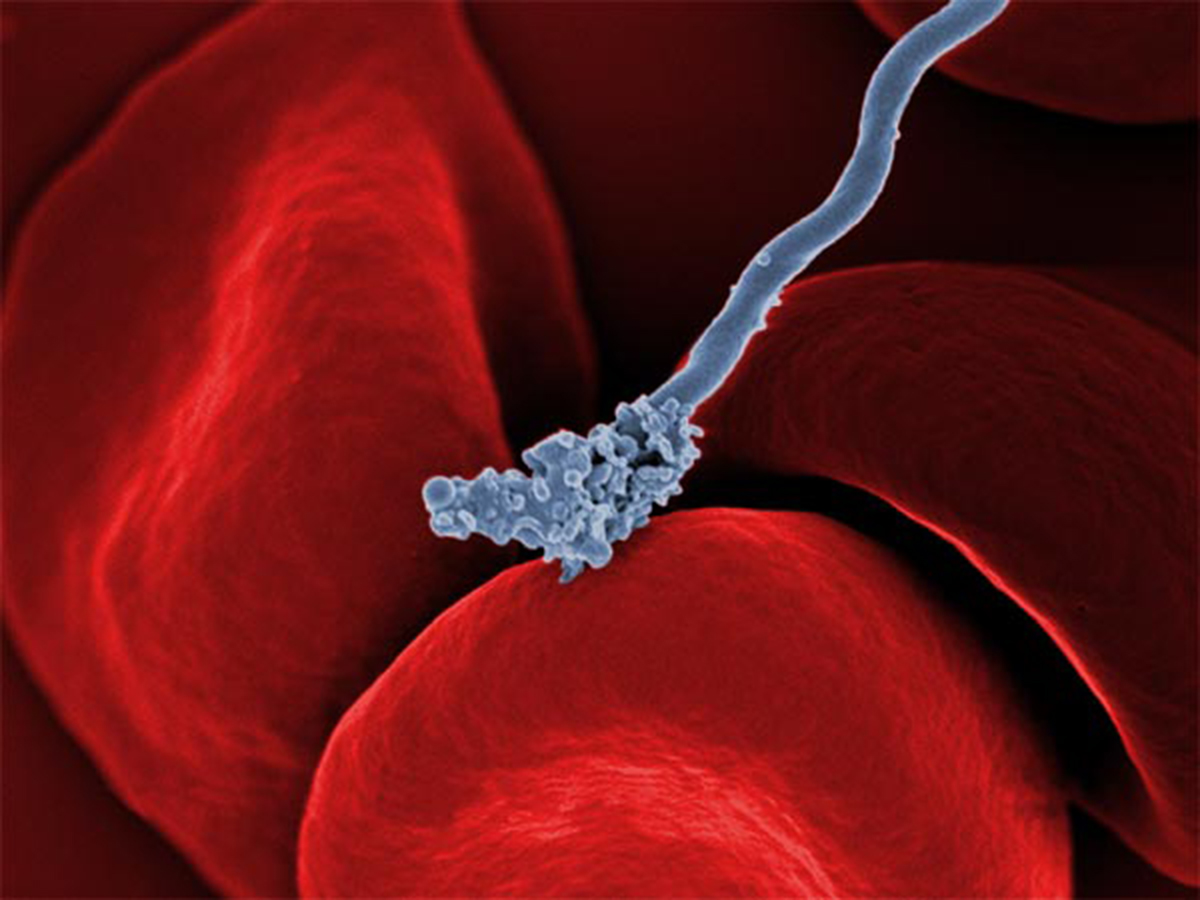Table of Contents
The team, headed by Professor Marc Turner, has succeeded in producing red blood cells that are good enough for human use. Crucially, the cells are blood type O-, an extremely rare blood typewhich is compatible with all other types, meaning the cells could be transfused into anyone.
That would soplve one of the most serious blood transfusion problkems:at the end of the supply chain, in remote, isolated or developing locations, there may not be an absolute shortage of blood — but there's often a shortage of a specific type of blood.

The work of Professor Turner's team isn't entirely unique — the problem is an old one and various solutions including animal blood have been tried in the past. A product called HemaPure, derived form bovine (cow) hemoglobin, was OK-ed in South Africa in 2001 and is undergoing trials in the UK and elsewhere. In 2013, a team working out of the European city of Cluj-Napoca revealed thay had a system for creating blood components from proteins derived from sea animals. (Would they have got as much attention if Cluj-Napoca wasn't historically in Transylvania? Hard to say.(Source: MedicalDaily.com)) However, while artificial blood has been attempted in the past, it's never been of sufficient quality to use with humans before.
"We have made red blood cells that are fit to go in a person’s body. Before now, we haven’t really had that," said study leader Professor Marc Turner. "Although similar research has been conducted elsewhere, this is the first time anybody has manufactured blood to the appropriate quality and safety standards for transfusion into a human being." (Source: The Scientist).
The team pursued a new tack, by working with stem cells donated by consenting mothers from umbilical cord stem cells. Under laboratory conditions those stem cells were encouraged to grow into red blood cells, which are the scarcest blood product. Obviously, that means these aren't really "artificial blood cells." Instead, they are red cells grown from human stem cells. However, they have several advantages over donor cells, including being free from disease. Because they have never been inside a human body, they are free from hepatitis, HIV and other blood-borne disease.
The new cells are "comparable if not identical to the cells from a donor," in the words of team member Nick Watkins.
As Professor Turner, the leader of the study, says, "a single unit of blood contains a trillion red blood cells. There are two million units of blood transfused in the UK each year" — so moving from successful trials in animals, through human trials, to full production, will be tricky.
READ Blood Tests: What Do They Tell?
Dr Ted Bianco, Director of Technology Transfers at the Wellcome Trust, which funded the $7.5m research, says: "One should not underestimate the challenge of translating the science into routine procedures for the clinic. Nowhere is this more apparent than in the challenge Professor Turner and colleagues have set out to address, which is to replace the human blood donor as the source of supply for life-saving transfusions."
- Photo courtesy of m.mate via Flickr: www.flickr.com/photos/mares87/5943681577
- Photo courtesy of National Insitutes of Health (NIH) via Flickr: www.flickr.com/photos/nihgov/20674230812
- "New Artificial Blood Made In Transylvania, Could Lead To ‘Instant Blood’ Doctors Mix With Water," MedicalDaily.com, http://www.medicaldaily.com/new-artificial-blood-made-transylvania-could-lead-instant-blood-doctors-mix-water-261580 "NHS to give volunteers 'synthetic blood' made in laboratory within two years," The Independent, http://www.independent.co.uk/life-style/health-and-families/health-news/nhs-to-give-volunteers-synthetic-blood-made-in-a-laboratory-within-two-years-10343279.html "Artificial blood 'will be manufactured in factories'," Daily Telegraph, http://www.telegraph.co.uk/news/health/news/10765132/Artificial-blood-will-be-manufactured-in-factories.html "Blood Facts and Statistics," Red Cross, http://www.redcrossblood.org/learn-about-blood/blood-facts-and-statistics "Artificial Blood Is Patient-Ready," The Scientist, http://www.the-scientist.com/?articles.view/articleNo/39718/title/Artificial-Blood-Is-Patient-Ready/


Your thoughts on this